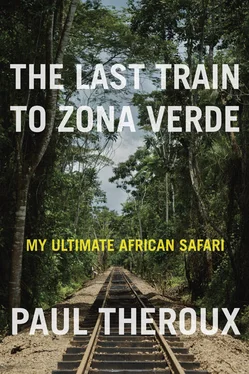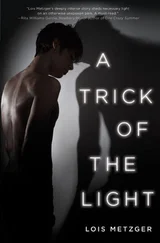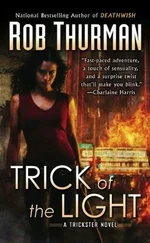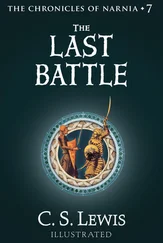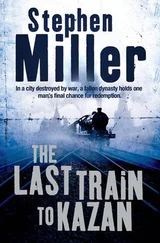“So if it’s as awful as you say, how do you manage to live in Luanda?”
“I don’t live in Luanda!” he said. “And I travel a lot.”
It was then that he’d described his film on the iconic symbol of Angola, the giant sable antelope. When I mentioned that I knew the sable antelope from its picture on the 10-kwanza note, Kalunga laughed. No, he said, that was yet another example of Angolans getting it wrong: the animal depicted on the money was not a sable antelope but another creature entirely, called a bush donkey. Angolans didn’t know the difference, but in any case, there were only about forty of the animals left in the wild, because of the erosion of their habitat and their being poached for their meat and their splendid horns. They were doomed.
“And we’re probably doomed,” Kalunga said. “That’s why I don’t live in Luanda. I moved my family to Lubango so we can get out of the country if there’s trouble. It’s possible from there to get to Namibia by road. In a crisis we’d never get out of Luanda by road or air. We’d be stuck here, and that, my friend, would not be good.”
His wife, Maria Manuela, whom he called Nela, was a medical doctor in the Angolan army, and they had three young children: Carlos, sixteen; Rafael, nine; and Luena, seven. But his wife was barely getting by; doctors in Angola had no status, he said. Most doctors earned “about three thousand dollars a month — and a clerk in a bank earns about eight hundred.” The government hospital in Lubango was so poorly run his wife could not perform necessary operations — Nela was a plastic surgeon specializing in correcting disfigurements and war injuries — so she had joined the staff of a hospital funded by a Canadian charity.
“Imagine, a private hospital! Because this government, rolling in money, can’t run a hospital itself — that’s how desperate things are,” Kalunga said. “And Angolans don’t make anything. Everything is imported. There’s a lot from Brazil. Food from South Africa. Everything you see in this country — every single thing — has been made somewhere else.”
Meeting Kalunga Lima energized me, because he himself was energetic. He spoke his mind and I could speak mine, and I was free to ask him ignorant questions. He revealed a side of Luanda that had been hidden from me. He introduced me to his friends; some of them were as intense as he was, others were smooth operators — money men, importers of luxury cars, oil executives. Instead of going to the gourmet restaurants — the crowded, expensive places — we went to hole-in-the-wall places that from the outside did not look like restaurants at all — simple shop fronts that were mom-and-pop diners.
This was another aspect of the secret, improvisational city. One of these eateries — no name, no sign — served home-cooked Portuguese food, and a large-screen TV showed a live feed of the Portuguese parliament debating the meltdown of Portugal’s economy. Kalunga said that — given the food, the checkered tablecloths, and the genial hosts, Mr. and Mrs. Coelho — we might be in Lisbon or Oporto. And by the way, he said, the Portuguese prime minister would be arriving in Luanda within the next few days, hoping to borrow money from the Angolans to save Portugal from declaring bankruptcy. (This happened, just as he’d predicted.)
Kalunga explained to me the origins of the independence struggle. His father, Manuel dos Santos Lima, had been the first MPLA (Popular Movement for the Liberation of Angola) military commander, based in Algeria in the 1960s, and had helped found the military wing of the party. Kalunga said with a rueful smile that of all the foreign soldiers, only the Cubans had been idealistic, but in time they too became disenchanted with the corruption and selfishness that had followed the revolution. He detailed the atrocities, the beheadings, the mass killings committed on both sides, and the competition among independence fighters, and described the funding of the war, the slaughter of elephants for their ivory, the sale of blood diamonds.
But corruption was nothing new in Angola, he said. In the late nineteenth century a megalomaniacal chief in Ovamboland, in the south, had impoverished his people, stolen their cows, and built himself a castle in the bush. Other chiefs mimicked the Portuguese and dressed in frock coats. Certain chiefs of the Kwanyama bought imported clothes, drank champagne, studied etiquette, and stuffed themselves with food at a time when their own people were dying in a famine. These extravagances were a distant echo of what was happening in Angola right now.
Speaking of distant echoes, it was Kalunga who had used the word jinguba , meaning “peanut,” which reminded me of “goober.” He said the Kimbundu word mbanza , a musical instrument, probably became “banjo.” His name, Kalunga, bestowed on him by his proud father, meant “God,” “supreme being,” or “highly intelligent being,” and he laughed when telling me this. He explained that in this dispirited place many evangelical preachers from Brazil had become successful, turning movie theaters into churches. God-bothering was one of the growth industries of Angola — churches run by flamboyant Brazilian preachers. They were shysters, sweet-talkers, and because they demanded money from new believers and brandished fake diplomas, they were known as sellers of banha da cobra — snake oil.
“You’ve heard the word assimilado ?” Kalunga asked over coffee one day. I had heard the term and thought it indicated a mulatto with an education. But he said no. “They were indigenous people who held the status of citizen. There were three requirements. One, you had to speak Portuguese fluently. Two, you had to sleep in a bed, not on the floor. Three, you had to eat with utensils. What do you think?”
“Sounds reasonable.”
“But what about reading and writing?” He laughed softly. “Literacy wasn’t a requirement! And you know why? Because the Portuguese officials who checked them — many of them could not read or write. Ha!”
A habitual blogger, Kalunga often left posts on a documentary makers’ website, Creative Cow. One had been a message to a young filmmaker: “So much of life happens in ways that we can not entirely predict, so having a variety of experiences opens up possibilities you may not have predicted. For example, taking a course in a formal environment will give you a chance to meet individuals with similar goals you would not meet on your own.
“Last piece of advice, set yourself up for the long haul. What ever you do, make sure it is sustainable, it invariably takes longer than you think to get anywhere in life.”
Kalunga put me in touch with a well-traveled friend of his whom I asked about the Angolan president’s personal history, and he said, “I have seen favelas in Brazil and slums in Latin America and Africa. The slum where Dos Santos was born, Sambizanga, is by far the worst of them all. I have never seen anything to compare with it in squalor and poverty.”
We talked about paying a visit there. Kalunga said, “What’s the point?” And the friend agreed: “When Mandela became president, he made a point of fixing up the township where he’d been born, improving the housing and providing water and electricity. But Dos Santos, a multibillionaire and powerful, has done nothing. He has no wish to improve his town or do anything. He has no sentiment, no pity.”
The country was ripe for satire. In 2012, the New York Times Magazine ran a multipage advertorial, paid for by the Angolan government (a government that until then had refused to allow any New York Times journalist to enter the country), that referred to the “maturity of [Angola’s] young democracy.” “Young democracy” is a curious way to describe a country with a president who appointed himself in 1980 and has been in power ever since. Dos Santos’s portrait is on the money. When a politician’s face is on all the banknotes, you can be sure he is planning to stay in office for life. Young democracy!
Читать дальше
